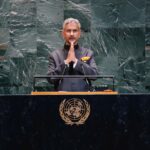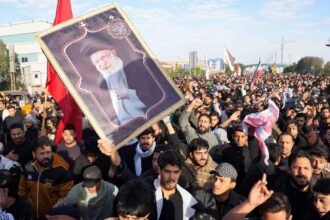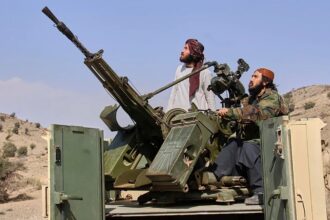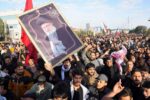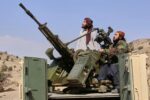Pakistan’s Deputy Prime Minister and Foreign Minister Mohammad Ishaq Dar raised Pakistan’s serious concerns about the presence of “terrorist groups” in Afghanistan at the inaugural meeting of the Organization of Islamic Cooperation’s Contact Group.
Pakistan’s Foreign Minister has expressed renewed concerns about the presence of “terrorist groups” in Afghanistan, specifically mentioning groups like the Tehreek-e-Taliban Pakistan (TTP), Baloch Liberation Army (BLA), Majeed Brigade, and East Turkestan Islamic Movement (ETIM) that are actively collaborating with Al-Qaeda. These groups pose a significant threat to regional and international peace and security.
The Foreign Minister, Senator Mohammad Ishaq Dar, emphasized that Afghanistan’s soil should not be used for terrorism against neighboring countries, particularly Pakistan. He called on the Afghan interim authorities to take concrete and verifiable action to prevent their territory from being used for terrorism.
Pakistan’s Foreign Minister said these terrorist groups also use digital platforms and social media to propagate and incite violence. He stressed that “this is never acceptable.”
The Pakistani senator and official, on Wednesday, at a high-level meeting of the Organization of Islamic Cooperation (OIC) on the sidelines of the 80th UN General Assembly session, urged the Taliban government in Afghanistan to take concrete and genuine steps to ensure its territory is not used for terrorism against neighboring countries, particularly Pakistan.
The Taliban government in Afghanistan hasn’t publicly responded to the latest claims made by Pakistan’s Foreign Ministry. However, they have repeatedly denied Pakistan’s allegations in the past, stating that Pakistan shifts the blame for its own security failures to Afghanistan.
The Pakistani official added, “Our officials and civilians in the country are making great sacrifices against the terrorism emanating from Afghanistan.”
He made these remarks while Pakistan’s army chief General Asim Munir stood beside him. Foreign Minister Dar proposed that the OIC Contact Group members form a working group of experts to jointly outline practical steps and achieve progress in addressing Afghanistan’s challenges.
He reiterated that Pakistan is committed to supporting all efforts to achieve a peaceful and prosperous Afghanistan. However, he said, “This is impossible without mutual respect, sincerity, and a clear demonstration of the necessary political will from the Taliban.”
Mr. Dar said, “No country is more invested in the return of normalcy and stability in Afghanistan than ours (Pakistan), their destinies are intertwined, and it is imperative that they assist in securing an Afghanistan that is at peace with itself and its neighbours.
“He stated that this meeting takes place at a critical juncture as Afghanistan enters a phase of relative peace after nearly five decades of war.
The Pakistani Foreign Minister stressed that although the world’s priorities have shifted to other regions, Afghanistan should not be out of focus, as it still faces severe constraints, including terrorism, narcotics, a failing banking system, unemployment, poverty, human rights concerns, and a political system that remains unrecognized even after more than four years.
Recently, the acting foreign minister of the Taliban government, Mohammad Yaqoob Mujahid, admitted in an interview that their government’s relations with Pakistan are strained, and expressed dissatisfaction over this.
Pakistan’s Prime Minister Shehbaz Sharif had given the Taliban government in Afghanistan an ultimatum a few days prior, stating that they must either stand with Pakistan or, in his words, with the “terrorists.”
Shehbaz Sharif made these remarks in Bannu after 19 Pakistani soldiers were killed in Khyber Pakhtunkhwa.
Shehbaz Sharif said, “I tell the Afghan government clearly today to choose between two things: if they want to have relations with Pakistan from the heart and genuinely, we are ready for them, but if they want to support terrorists, then we have no business with Afghanistan’s interim government. Pakistan’s army will eliminate terrorists in any case.”
Ishaq Dar’s requests to the Organization of Islamic Cooperation (OIC) for Afghanistan: The OIC should demand sufficient funding for Afghanistan’s humanitarian needs from international donor countries without political conditions.
The Organization of Islamic Cooperation (OIC) should help stabilize the Afghan economy and revive its banking system to create conditions necessary for trade and regional projects. The OIC should facilitate regional and multilateral dialogue and engagement with the Taliban to ensure their adherence to international commitments. Efforts led by the United Nations to provide alternative livelihoods for former poppy farmers should be supported.
The Organization of Islamic Cooperation (OIC) should pressure the Taliban to lift restrictions on women and girls, as it contradicts Islamic principles and the values of the Islamic community.
Now is the time for Afghan refugees to return with the advent of peace. The OIC should pressure Taliban authorities to create necessary conditions for the reintegration of returning Afghans, including their accommodation and participation in social and political life. Dar emphasized that the international community should also take on this responsibility.
The Taliban government in Afghanistan has not publicly responded to the latest claims made by Pakistan’s Foreign Ministry, but they have repeatedly denied Pakistan’s allegations in the past, stating that Pakistan shifts the blame for its own security failures to Afghanistan.


